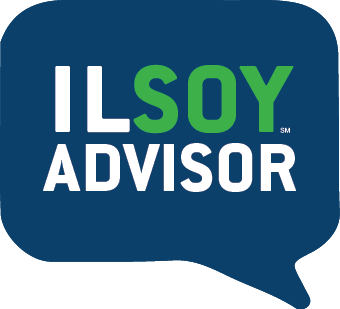As our farm businesses use tax planning tactics to reduce current tax liability impacts, we do not completely reduce the tax but move the tax to a future year. This webinar will provide details on the importance of identifying and calculating your operation’s deferred tax liability and how that can affect your current and future strategic farm management decisions.
Presenter: Dick Wittman, Wittman Consulting, Farm Manager/Family Business... Read More →
ILSOYADVISOR POST
Look Beyond Cash Rent: Growing Your Leased Acres
September 02, 2020
The second webinar in week four of the Agribusiness Management Program (AMP) Summer Webinar Series featured Jonah Kolb from Moore & Warner Ag Group. Kolb presented on what farmers can do to grow their leased acres and position themselves to be a counterparty of choice for farm managers or investors.
Before jumping into specific tips for farmers, Kolb offered some common myths that may cause farmers to lose focus in this area of their business:
- I don’t need to grow to survive. While it may not always be necessary to grow your acreage, some type of growth is necessary, whether it is adding innovation/technology or implementing a conservation practice.
- Farm managers are the bogeyman. Farmers may have had a bad experience with a farm manager in the past, but it could serve you to give them a chance. Good farm management is a benefit for both sides.
- I must pay the high(est) cash rent to pick up extra acreage. This isn’t always the case. You do have to be competitive, but you don’t necessarily have to pay the most in rent.
- Investors drive up the price of farmland. Investors bring an important liquidity to the market and in Illinois they own about 1% of all farmland. It’s often the neighbor down the road who pays the most for farmland.
Kolb also presented a brief reality check that farmers should consider as they work to build their leased acres. Among them, the idea that “fair” is dynamic over time. It’s often believed that leases have to be fair so everyone can make money. What was fair 20 years ago, probably isn’t fair today so the lease structure may need to change to incorporate new production practices or equipment. In addition, it’s important to remember that commodity crops are just that—commodities. You must be changing and innovating to remain profitable.
So how can farmers become a counterparty of choice for managers and investors? A good manager will first identify that it’s not just farming that is occurring on their land. The farmer is stewarding a lifelong, multi-million-dollar asset while engaging in high-risk activities (running machinery, being around ag chem, etc.). The farmer is also helping to provide important annual income for them.
Kolb has identified four things both parties should consider to be a counterparty of choice:
- Be ready to play ball financially and in the right ballpark. You must have competitive economics and run your farm like a business, not just a lifestyle. Also, make sure you know what is competitive and be in that range, even if you’re not the highest bidder. Use flex leases and bonus payments to your advantage.
- Represent your farm operation well. Formally presenting information on your farm can help the manager shape the description. Include the basics, but also include where you’re innovating and driving profit, the technology you use and how you will report back to them.
- Develop relationships with managers. The goal is to have a relationship that pre-dates an agreement. It should be a give-take relationship on both sides. As the farmer, you can give by proactively providing farm and technology updates they might be interested in. The take side would be showing them you are interested in growing your operation.
- Bring value beyond economics/yield/rent. This can take the form of communication and operational/financial transparency. It could also be improving production practices or providing additional value to the land by doing maintenance.
As heard from many of the previous AMP webinar presenters, communication is a key to success no matter what side of the lease you are on.
View the full webinar here: https://www.youtube.com/watch?v=YEoCfiKOcWY&feature=youtu.be
For additional AMP information, visit the program webpage at https://www.ilsoyadvisor.com/on-farm/ilsoyadvisor/amp-agribusiness-management.





Comments
Add new comment